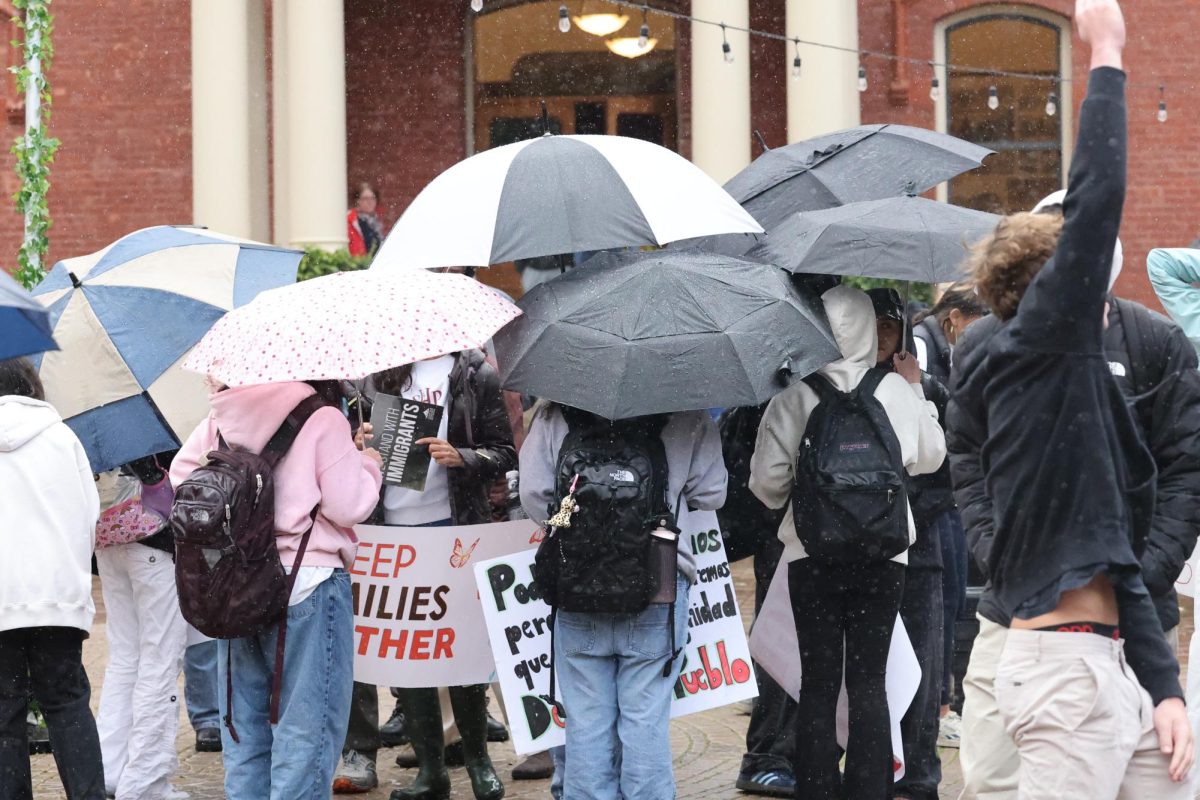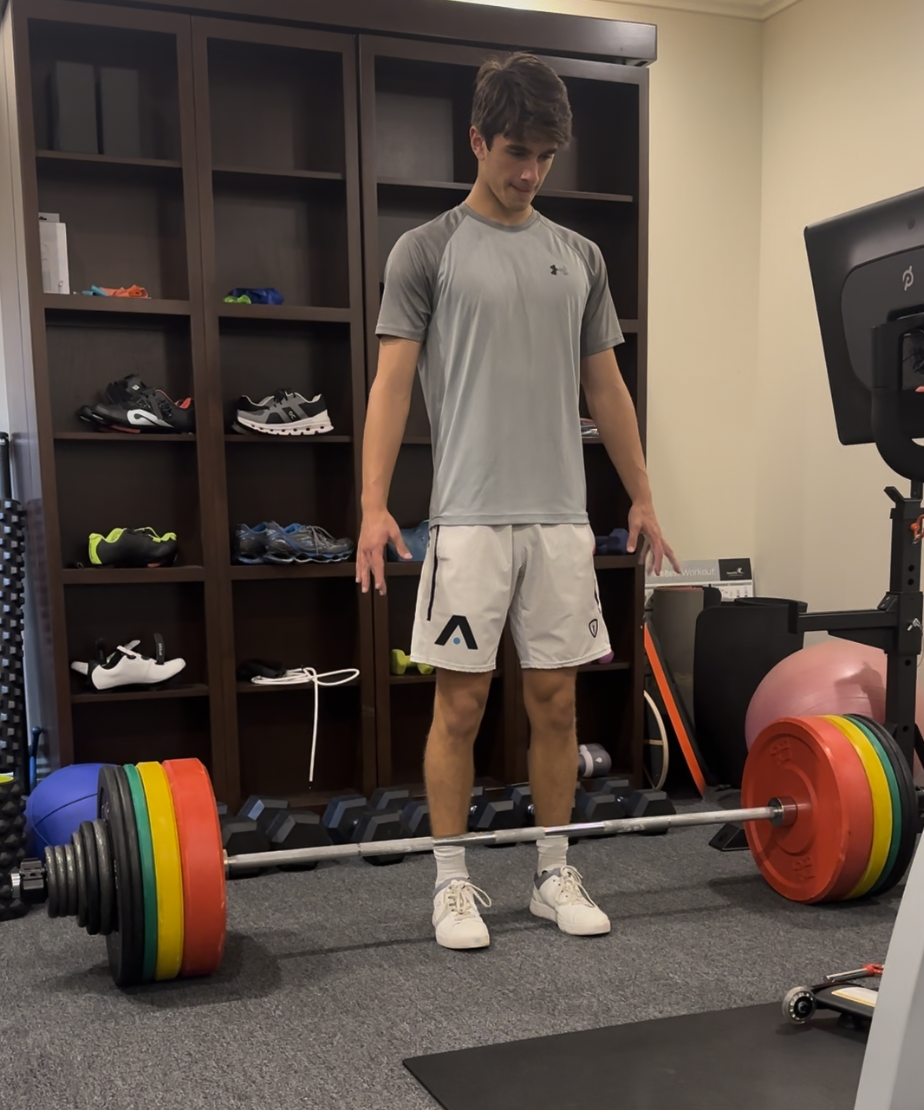As of September 4th, 2024, SHP students have gone to 49 classes in the new school year; Taylor Swift has released 49 songs, including their remixes; and the United States has witnessed 49 school shootings (CNN). On Wednesday, September 4th in Winder, Georgia, two students and two teachers were murdered in a mass shooting at Apalachee High School. The shooter, currently on trial for four counts of murder, was freshman Colt Gray who reportedly ditched second period algebra to take out his weapon: a semi-automatic AR-15 rifle. Along with the passed victims—14 year-olds Christian Angulo and Mason Schermerhorn, as well as math teachers Cristina Irimie and Richard Aspinwall—nine others were injured and Apalachee High School’s 1,900 students were left with much trauma and an indefinite break from school five weeks into the new year. In shock, urgency, and courage, students have spoken out on various platforms, including media outlets and social media, about their experiences with an event they never should have had to endure. America’s attention must, once again and with more urgency, turn to the issue of gun control. The individual’s freedom to handle and possess a firearm has come at the cost of the freedom of innocent children to handle and possess their own lives.
The state of Georgia, notably having notoriously loose gun laws, has approached the shooting’s case with a boldness and, as dubbed by the New York Times,“novelty.” Following precedent set by a ruling over a mass shooting case in Michigan, young Colt Gray’s father, Colin Gray, has been charged alongside his son. Two counts of second-degree murder, four counts of involuntary manslaughter, and eight counts of cruelty to children are to be tried in his name. This strategy aims to address the issue of school shootings by holding parents accountable for knowingly providing firearms, given that school shootings are often perpetrated by children and are therefore dealt with less weight in trial. Another potential benefit of this tactic is an incentive for parents to pay greater attention to their children’s mental wellbeing (New York Times). Accordingly, prosecutors were permitted to charge felony counts on Colin Gray as his son had been identified as a threat to schools the year prior, yet Colt Gray was still allowed access to the weapon he had received as a gift for Christmas. The latter point in it of itself raises legality issues. Georgia Code 16-11-132 states that “it is unlawful for a minor to possess a handgun or for a person to furnish a handgun to a minor.” However, regulation of adherence to this code is difficult when a permit, registration, or license is not required to carry or purchase a rifle, shotgun, or handgun in the state (NRA-ILA). Additionally, Colt was handed a rifle, not a handgun, which is not explicitly mentioned in the code. To the former point, in May of 2023, Colt Gray had been approached by the Georgia police over online posts threatening to commit a school shooting. The threats were sent out through Discord under a username written in Russian, translating to the surname of the shooter in Sandy Hook Elementary’s school shooting in 2012 (CBS News). The boy, 13-years-old at the time, denied ownership of the account (claiming to have deleted it after being hacked) and any intention to open fire at school. Other evidence against Colt Gray was deemed lacking and the case was dropped.
With this occurrence, late enrollment into high school, frequent infrequency of attendance in class, and a call from Colin’s mother 30 minutes before the shooting warning a counselor of an “extreme emergency” regarding her son, it has been questioned whether the shooting could have been prevented. In a series of interviews between students and teachers of Apalachee High and the New York Times, a recurring theme was made clear: community could have been a solution (New York Times).With a different perspective, teacher Stephen Kreyenbuhl noted that they “didn’t get a chance” to make Colin feel a part of the community at Apalachee. Rather than pinning shame on the shooter , Mr. Kreyenbuhl asked, “what could we have done more?”(New York Times). On the other hand, missed opportunities at prevention take the form of extreme risk protection orders, otherwise known as “red flag laws.” These orders allow courts to mandate the temporary removal of guns from individuals flagged as threats to themselves or others, Colin Gray, falling into this category. Unfortunately, Georgia is one of the 21 states that does not have red flag laws in place. Gabe Okoye, Georgia state representative, believes the shooting would have been deterred had Georgia enacted them (CBS News).
Through all the nuance, tragedy, and complexity of the Apalachee School shooting, what’s clear is that it is unacceptable. It is unacceptable that lives were lost and the safety of students and teachers was threatened in a space where lives should be enriched with knowledge and connection. It is unacceptable that at 14, when kids should be entering high school with a sense of wonder and exploration, a child entered with a semi-automatic rifle. It is even more tragic that a child would experience life that would result in these actions. It is also difficult to navigate that AR-15s, the most used weapon in mass killings, a weapon that propels bullets with enough velocity to impart a “shock wave” that can “blow apart a skull and demolish vital organs”, is widely available and recreationally used (Washington Post). Yes, the AR-15 is not only the most popular rifle among mass shooters, but also with all gun-owning Americans. Although varying in number, every source accredits at least 10 million Americans to owning an AR-15 for its user friendliness and high quality, making it a primary choice in marksmanship competitions, hunting, and home defense. The course of action on gun control therefore should not stress most on what gun is used, but who owns guns and how. Had Georgia enforced tighter laws on firearm permits and registration and put in place red flag laws as precaution, perhaps Apalachee High School would be rolling through the new academic year with bustling students. Perhaps the four victims’ families would remain as whole as they once were. If nationwide there were greater measures taken to constrict gun-owning to individuals with law-abiding intentions, perhaps we would not see another school shooting and say doubtingly, “never again”.
School shootings are not and can not be a fact of life.













